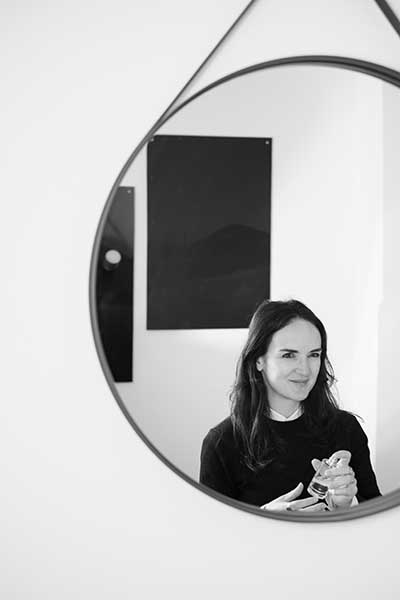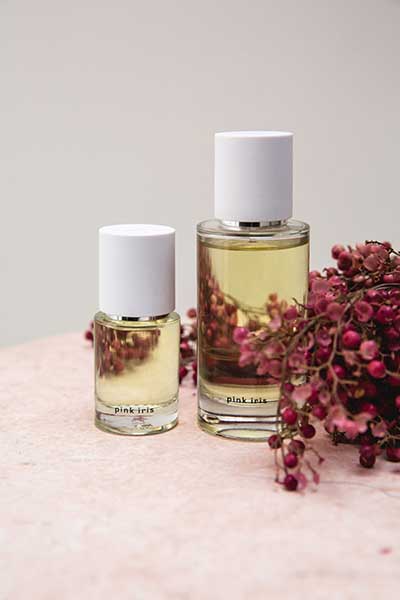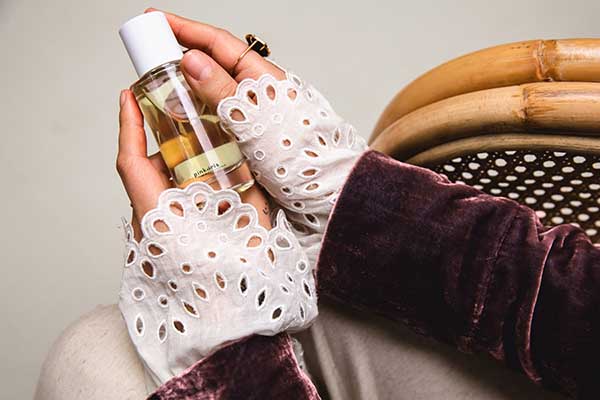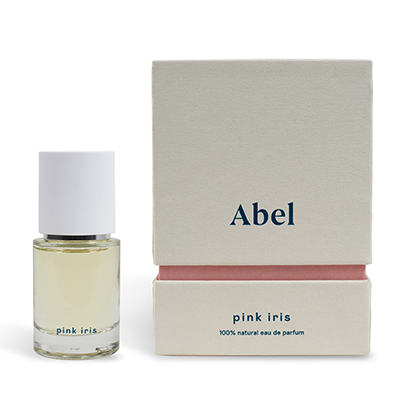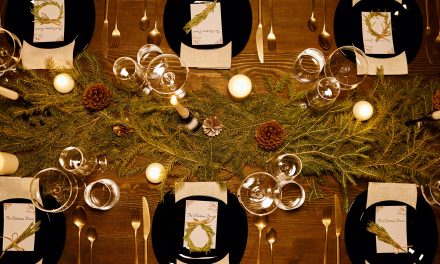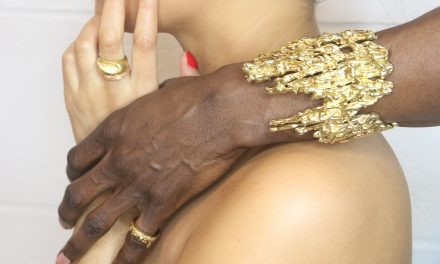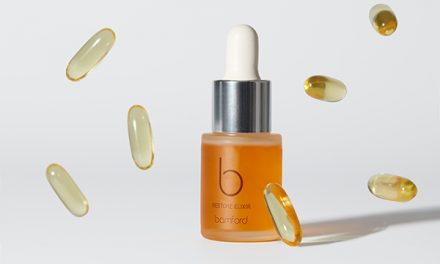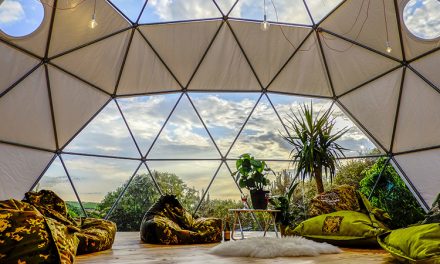10 Questions for Frances Shoemack of Abel
Image: Abel
While perfumes smell of natural things, it’s very rare to find one made entirely naturally. Rarer still is to find one with the kind of luxury aesthetic and sustainable ethos that Abel has. We asked Founder Frances Shoemack 10 questions to find out more.
Frances Shoemack is a former winemaker turned natural perfume innovator. Frustrated by the lack of natural fragrances on the market, she teamed up with perfumer Isaac Sinclair to develop her own. Fast forward to 2019 and Abel are launching their seventh fragrance Pink Iris. To celebrate the new release, we spoke to Frances about changing the face of fragrance by creating a luxury natural perfume company against the odds.
The Vendeur: Your career began in wine making, can you take us through your journey from making wine to making perfume?
Frances Shoemack: I’ve always been interested both in the olfactory and the creation process that happens at the intersection of art and science (I’m also very drawn to architecture!). I studied Viticulture and Oenology (winemaking) at university, starting my career in a winemaking graduate role. However by the time I left New Zealand many years later for Amsterdam, I’d moved more into the brand and communications side of things.
No one moves to Amsterdam to get a job in wine! Part of the adventure and appeal for me was knowing that I was heading for a career pivot. Several months into a marketing role in the tech industry, I’d realized how important it was for me to be working in an industry that I loved. At the same time, my husband and I were exploring Europe every chance we got and I was falling in love with this emerging world of artisan fragrance. But, already being a natural consumer, I was actively searching for a natural perfume within the category. When I realized I had to go to an organic grocery shop to buy a natural perfume (although I could buy beautiful natural skincare and make up at gorgeous specialty boutiques), the idea for Abel was born.
“Living in Amsterdam, I was actively searching for a natural perfume. I realized I had to go to an organic grocery shop to buy a natural perfume not a gorgeous specialty boutique.” – Frances Shoemack
TV: How long did the development of the first Abel product take?
FS: It was basically two years from starting out with the idea of Abel, and having our first fragrance in the market. The development of the fragrance formula itself took around 12 months. Even today, we allow 12-24 months of development time with every launch.
TV: What challenges did you come up against creating your first natural perfume?
FS: People (the industry!) didn’t believe it was possible to create a 100% natural perfume that is chic, modern and long lasting (which was what we were setting out to do!). I use the term “guilty until proven innocent” and that’s really one of the major battles from day one. Right through until the last 12 months or so in which we’ve seen the tide change.
TV: What do you think are the main reasons that most perfumes are not naturally made?
FS: There are a few; cost is by far the biggest one – natural ingredients are very expensive, sometimes 100x as expensive as their synthetic counterparts. We can’t take short cuts to create the perfumes. You can’t rely on perfumers tricks and it’s very challenging to create an amazing 100% natural perfume. More perfume these days are “clean” which doesn’t necessarily mean natural. It’s generally cheaper and easier than natural. To work with only naturals you have to be really, genuinely committed.
TV: In your opinion why are natural perfumes better than synthetic?
FS: I prefer natural perfume over synthetic in the same way I prefer real orange juice over orange flavoured drink! The real thing is more complex, layered, textured and I know it’s better for me.
“The industry didn’t believe it was possible to create a 100% natural perfume that is chic, modern and long lasting.” – Frances Shoemack
TV: When creating the latest fragrance Pink Iris, you had a very clear image of what the final product should be. Is this how you begin working on every fragrance?
FS: This time I did, yes, but more often it’s inspired by a single ingredient or accord that either Isaac or myself were just dying to work with as a hero note. We match a colour to the ingredient to create some kind of creative direction, but generally we let the ingredients do the talking. This is similar to wine making, they say you can’t create a good wine with bad grapes.
TV: How do you source the ingredients? Are there any certifications that you specifically look out for?
FS: Both Fairtrade and Organic are important although not always possible. Cruelty free is non-negotiable for us. We are lucky that our main fragrance supplier is very knowledgeable about and committed to sustainable sourcing as sometimes certification systems are just not in place.
TV: Have there been any areas you have had to compromise on to reach a high standard of product?
FS: There are always compromises! I think business is a series of problems to solve, at each step deciding what is the compromise you’re willing to make! We have a very clear idea of the things we are willing to compromise on and those that we never buckle on. As a result, often the compromise is time and/or money.
Image: Abel
TV: Can you tell us more about the fair trade farming practises that you support? And are you able to make sure all of your ingredients come from sustainable sources?
FS: I always find the word “sustainable” extremely hard to pin down. There are very few things in the world that are truly sustainable. However we look at things like replanting, support in the local community and adoption of more sustainable practices. Our main fragrance supplier is actively setting up initiatives to support their suppliers too.
We (Abel) also commit 1% of our total revenue to environmental causes and we try to support grassroot non-profits in the areas from which we are sourcing ingredients. For example our Vetiver oil comes from Haiti and 1% of White Vetiver sales go to supporting SOIL Haiti, a grassroots foundation that turns human waste into compost while providing otherwise non-existent sanitation solutions in the Haitian community.
TV: What have been the greatest rewards for you building a natural fragrance company and what can we expect to see next?
FS: I love talking to customers around the world and seeing their true love and passion for what we are doing. That has been both unexpected and insanely gratifying. At the moment we have no plans to launch a new fragrance after Pink Iris. I’ve been throwing round the idea that a collection of seven is enough, and that if we want to launch a new fragrance, we need to eliminate a previous one. I believe we need to walk the talk as a company communicating sustainable and minimalist values and this would force us to be super disciplined. We have more sustainable initiatives rolling out this year though – that will always be a continual journey.
Disclaimer: The people and models in the images featured are not associated with The Vendeur and do not endorse it or the products shown. This post may contain affiliate links. Prices correct at time of publishing.

